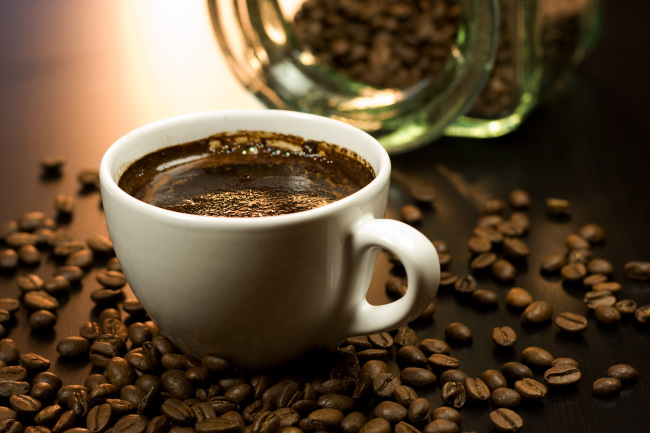Introduction to the Flavor of High-quality Coffee beans in the producing area of Larez Yaoke Coffee Manor in Puerto Rico
In 1898, the Spanish-American War broke out and Spain was defeated. According to the Treaty of Paris, Puerto Rico was ceded to the United States. The administrative jurisdiction of the United States over Puerto Rico first took the form of a military junta. During its two years of governance of the island, the junta established schools, roads, railways, hospitals and health facilities. In 1900, the United States Congress established civilian control over the island. One of the two chambers of the Governor, the Cabinet and the Puerto Rican legislature is appointed by the President of the United States. Puerto Ricans elect another chamber of the legislature and a commissioner based in the capital who will represent the interests of the island in Washington and have a voice but no vote in Congress. Puerto Ricans are also exempt from United States taxes, the current Governor Alejandro Garcia Patia (Alejandro Garcia Padilla)
San Juan
San Juan
), people's Democratic Party. Born in Puerto Rico on August 3, 1971, he received a bachelor's degree in political science and economics from the University of Puerto Rico and a law degree from the Pan American University of Puerto Rico. Professional lawyer. Zeng Renbo, assistant judge of the Court of Appeal and professor of law at the Pan American University of Puerto Rico. From 2005 to 2007, he served as Minister of Consumer Affairs of Poland. He was elected as a senator in 2008. He has been chairman of the people's Democratic Party since April 2011. He was elected governor of Poland in November 2012 and took office in January 2013. according to the US Department of Commerce, in 2012, Puerto Rico's foreign trade totaled about 44.5 billion US dollars, of which exports were about 18.7 billion US dollars, an increase of 2.6 percent over the same period last year, accounting for 1.2 percent of the total US exports. The top five export markets are Belgium (2.4 billion), the Netherlands (2.1 billion), Japan (1.8 billion), Italy (1.6 billion) and the United Kingdom (1.5 billion). The products with the largest export volume were chemical products (15.2 billion, accounting for 81.6% of the total exports), computers and electronic products (400 million), electrical equipment and accessories (300 million), waste and scrap (300 million), and primary metal products (200 million). [2]
Imports totaled about $25.8 billion in 2012, up 4.8 per cent from a year earlier and accounting for 1.1 per cent of total US imports. The top five sources of imports are Ireland (7.6 billion), Singapore (4.1 billion), Japan (1.9 billion), Brazil (1.3 billion) and China (860 million). The main imported products include: chemical products (14.4 billion, accounting for 55.8% of the total import value), crude oil and coal products (5.6 billion), transportation equipment (800 million), oil and gas products (600 million), food (600 million), etc. [2]
On June 17, 2015, Puerto Rico Governor Garcia publicly admitted that the authorities were working on a proposal to ask the United States Congress to allow heavily indebted local governments to declare bankruptcy. After a decade of economic woes, Puerto Rico has a debt of $72 billion
Puerto Rico has been in the news lately because its government, which has been saddled with $70 billion in debt for years, officially defaulted in August. Its embarrassing situation originated from the Spanish-American War in 1898, when Spain surrendered Puerto Rico to the United States, making it a commonwealth of the United States in the Caribbean. Unlike the 50 local states, some federal benefits are not available to it, but rules and regulations must be observed. Puerto Rico has had four referendums, the last in 2012, when 61% of its citizens approved it as the 51st state in the United States, but waiting for Congress to pass is a long way off. The state government is so unable to be protected by the bankruptcy law after default that it is jokingly called the Greece of the United States because their financial situation is similar to their political relations with the United States and the European Union.
The decline of Puerto Rico's coffee industry has a lot to do with its awkward economic and political situation. During the Spanish-American War, the United States had established a strong and lasting coffee trade agreement with Brazil, a coffee giant, and did not give too much thought to Puerto Rico, which had just been successful. Moreover, the economic purpose of the United States in the Caribbean is mainly focused on the sugar industry, which has made the local sugar cane production so booming that small-scale coffee retail investors have no way to fight, and coffee manufacturers who can survive have to merge again and again to retain their strength. It is said that the quality of local varieties has also been affected.
Nowadays, Puerto Rico's coffee is not even enough for domestic demand, and it still needs to import raw beans from other places for baking, so we don't know how much of the coffee we snapped up was picked on the island.
But the shortage of coffee on the island is not entirely due to the decline in production. Because of the closer relationship with the United States, few local people are willing to engage in the coffee-picking business. According to records, 1/4 of the coffee on the trees is wasted every year because it is not picked, because coffee farmers go to work in the United States. Those who stay, because of the minimum wage law, government subsidies, and other social welfare reasons, are also unwilling to do the work of bending over the slopes all day in the scorching sun. According to the latest statistics, today the population of the island is about 3.9 million, while the population of Puerto Rico in the United States reaches 4.2 million. No wonder the state government has recently been weighing the use of prisoners to pick coffee beans. It's just that no one knows how effective the work of these prisoners who prefer to stay in air-conditioned cells is.

Important Notice :
前街咖啡 FrontStreet Coffee has moved to new addredd:
FrontStreet Coffee Address: 315,Donghua East Road,GuangZhou
Tel:020 38364473
- Prev

Introduction to the flavor and taste of Ethiopian Sidamo Shachiso Coffee with a strong floral flavor.
In July 1991, EGF hosted a national conference with the participation of more than 20 political and ethnic organizations. The meeting adopted the Transitional Charter and elected an 87-member House of Representatives, with EGF Chairman Meles Zenawi as President of the Transitional Government and President of the House of Representatives. A transitional government was established. On May 24, 1993, Eritrea (formerly the province of Eritrea, Ethiopia) adopted
- Next

An introduction to the characteristics of the flavor and taste of Ethiopian Yega Sheffield Adordo coffee.
In July 1991, EGF hosted a national conference with the participation of more than 20 political and ethnic organizations. The meeting adopted the Transitional Charter and elected an 87-member House of Representatives, with EGF Chairman Meles Zenawi as President of the Transitional Government and President of the House of Representatives. A transitional government was established. On May 24, 1993, Eritrea (formerly the province of Eritrea, Ethiopia) adopted
Related
- Detailed explanation of Jadeite planting Land in Panamanian Jadeite Manor introduction to the grading system of Jadeite competitive bidding, Red bid, Green bid and Rose Summer
- Story of Coffee planting in Brenka region of Costa Rica Stonehenge Manor anaerobic heavy honey treatment of flavor mouth
- What's on the barrel of Blue Mountain Coffee beans?
- Can American coffee also pull flowers? How to use hot American style to pull out a good-looking pattern?
- Can you make a cold extract with coffee beans? What is the right proportion for cold-extracted coffee formula?
- Indonesian PWN Gold Mandrine Coffee Origin Features Flavor How to Chong? Mandolin coffee is American.
- A brief introduction to the flavor characteristics of Brazilian yellow bourbon coffee beans
- What is the effect of different water quality on the flavor of cold-extracted coffee? What kind of water is best for brewing coffee?
- Why do you think of Rose Summer whenever you mention Panamanian coffee?
- Introduction to the characteristics of authentic blue mountain coffee bean producing areas? What is the CIB Coffee Authority in Jamaica?

